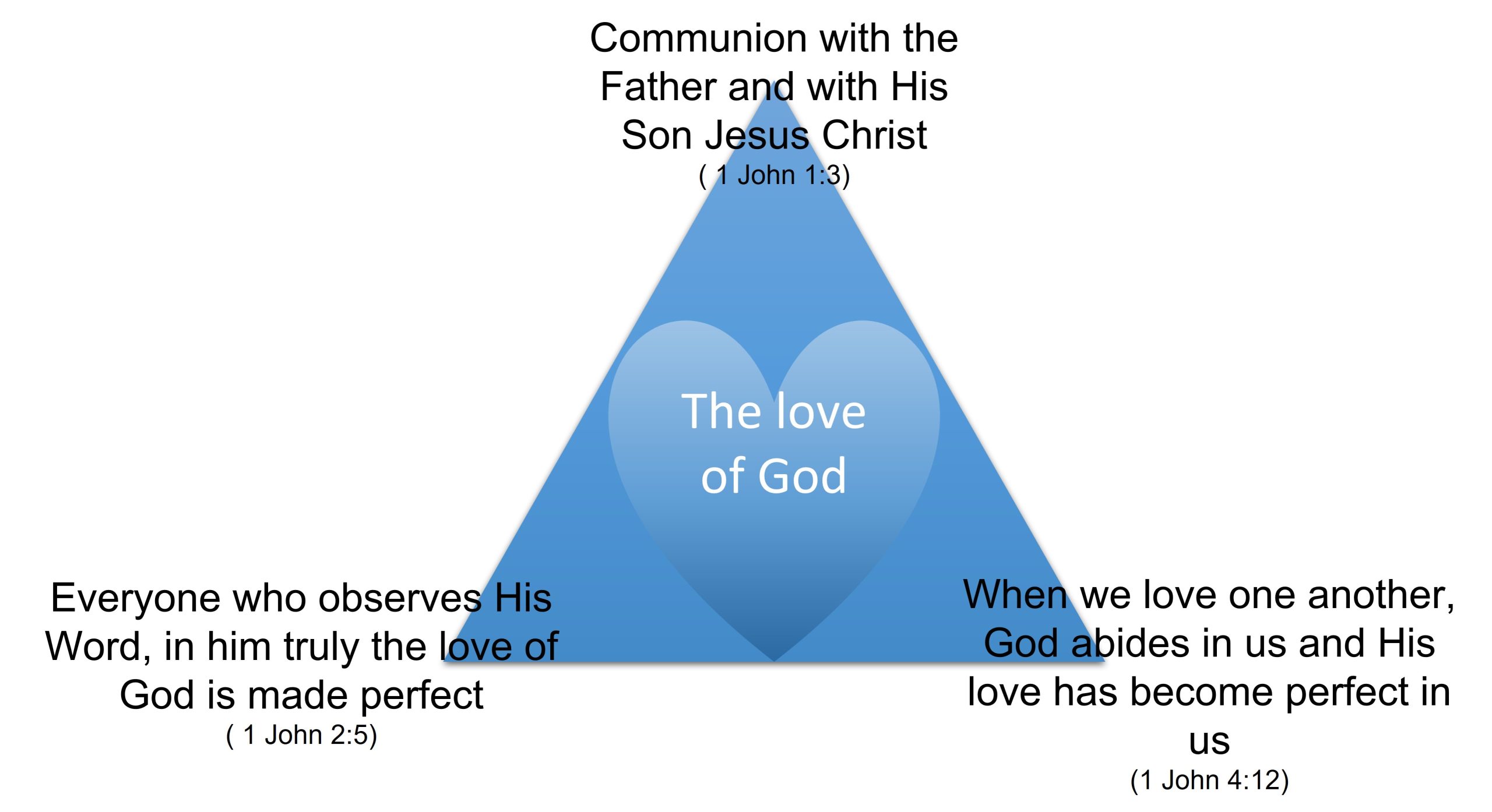A new Reformation?
Soon there will be a Bible study conference somewhere in the country where one of the evenings will be discussing the theme “The Longing for More of God's Spirit in 2017“. The accompanying text is this:
“Worldwide there is an increasing interest in the work of God's Spirit in the church. Not only in the Pentecostal churches, but also in almost all traditional churches. Just as the 500th anniversary of the Reformation is being celebrated, there seems to be a new Reformation. Now the activity of the Spirit in the believer is central, through which God directs each believer directly and distributes of His gifts.
In the 20th century you had believers who said that God speaks to us exclusively through his word and on the other hand those who emphasized personal experience and the direct working of God's Spirit. There was often misunderstanding or skepticism. In the 21st century, we see this dividing line increasingly blurred.
In every church reform, God in His grace wants to shed new light on old truths. Anyone who wants to delve into God's Word with us, and who also
want to reach out to the fresh and renewing work of God's Spirit, we cordially invite you to experience this evening with us!”
We'll try to find out in this post what God's Spirit does in a born-again person. To what extent is therea personal experience and direct working of God's Spirit'? Because apparently that's what it's all about.
That personal experience and direct working of God's Spirit is indeed there. But also completely different from what the majority of the evangelical world thinks today.
The contradiction
A contradiction is made that is not correct. View a) that says dthat God speaks to us only through His Word and view b) that personal experience and the direct working of God's Spirit.
Literally, the two views may not be opposed, but if you start the discussion like that, you'll end up wrong. The same is true in the discussion of whether faith is something of the head or the heart. According to Paul, they are antitheses (contradictions) that have to do with 'so-called knowledge'. They do not lead to the truth, but draw us away from the faith (1 Timothy 6:20-21).
The question whether God speaks to us through Scripture or through direct personal action/experience should not be asked like this. It assumes a contradiction that does not exist. If we want to know why a believer receives the Holy Spirit and how that Spirit works and in what sense this can be experienced, then we must let the Scriptures speak and start from that. Then God Himself will give us the answers.
Why the Holy Spirit?
The Lord Jesus, in His last conversation with the disciples before His death, looked ahead to the time when He would no longer be with them (John 13:31-16:33). He then gave them three commands:
- love him,
- keep his commandments and
- love each other.
Three assignments that are not available separately. John describes this extensively in his first letter. They are the characteristics of the born-again Christian.
Three commissions, moreover, which the Lord knew they could not fulfill without the Comforter He would send them (John 14:16,26;15:26; 16:7-15). Without the Holy Spirit of God, they would perish on the way—until the Lord returned to get them. Simon Peter had good intentions, but the Lord told him he would not succeed (John 13:36-38).
The love of God
At the end of the prayer that the Lord Jesus says to His Father about His disciples, He concludes with the desire
“(…) that the love with which thou hast loved me is in them, and I in them” (John 17:26)
Well, this has become a reality through the gift of the Holy Spirit because we read
“(…) that the love of God has been poured out in our hearts through the Holy Spirit who has been given to us” (Romans 5:5)
This means that when a child of God is born again, he receives the Holy Spirit who pours out the love of God in his heart! That is the same love with which the Father loved the Son. Not just a little, but pour out! Enough for a lifetime, just like the well-known oil in the widow's jar (1 Kings 17).
That is the first work the Spirit does in the heart. But it is also the work with which He continues, namely that the believer
- the Lord Jesus loves,
- love God's Word and keep His commandments and
- love all who are born of God.

Walking in the Spirit
That continuous work of God's Spirit in the life of the believer does not go without that person. It is also the believer's own responsibility to 'to walk to the Spirit' and not according to the flesh (Romans 8:1,2). But it is the Spirit who produces from the love of God
- love and abide in the Lord Jesus (John 14:21;15:4)
- keeping the commandments of the Lord (John 14:21;15:10)
- the relationship of love with the Father and the Son (John 14:21,23)
- teaching from the Word of God (John 14:26; 16:13)
- fruit to the Father (John 15:2,8, 16), worship (John 4:23,24) and glorification of the Lord Jesus (John 16:14)
- the peace of the Lord in all circumstances (John 14:27;16:33)
- utter joy, the joy of the Lord Jesus in us (John 15:11;17:13)
- love to all who are born of God (John 15:12,17)
- the witness of the truth in a world that hates Christ (John 15:18-27; 16:8-11)
You could add the "fruit of the Spirit" to that: "love, joy, peace, patience, kindness, goodness, faith, meekness, self-control" (Galatians 5:22).
When 'walking in the Spirit' is the believer's own responsibility, then his at the same time ascribing its 'results' only to the work of the Holy Spirit in the heart of the believer.
God's Church – the same life
The church of the living God consists of all who have been born again and thus have received the same new life through the Holy Spirit. God intends that all should walk after the Spirit and not after the flesh.
Things went wrong in Corinth. There was division and all kinds of 'denominations' arose. Paul writes to them about this (1 Corinthians 1:10-13) and in chapters 1 to 4 deals with the question of how this division came about. The two major related causes are that
- Christ crucified was no longer their only foundation and center. That was exactly what Paul had preached to them (1 Corinthians 1:17,23;2:2). The cross of Christ had lost its power to them (1 Corinthians 1:17). They had 'left the first love', as the Lord later tells the church in Ephesus (Revelation 2:4)
- human wisdom had entered. With that, God's wisdom and His Word had been set aside. Paul finally had to call them to “can't think of anything beyond what is written” (1 Corinthians 4:6)
In other words, the love for the Lord Jesus has grown cold and the love for God's Word has also disappeared. The result is also that mutual love and togetherness has disappeared and they have fallen apart.
We see that a 'walk in the Spirit' is not only necessary and possible for an individual believer, but that it is also the condition for the practical unity of the believers in the church of God.
If I didn't have love
From chapter 12 Paul writes in the 1st letter to Corinth about the spiritual gifts. But, he says, you can have wonderful gifts, but if love is missing, it is nothing (1 Corinthians 13:1-3). It is the love for the Lord Jesus, which the Holy Spirit has poured out in our hearts and which must be lived out in a 'walk after the Spirit'. Only then is a believer able to exercise his spiritual gift and serve the fellow believers with it. Because that is why that gift was received. Not for yourself, but for others (1 Corinthians 12:7).
But what was done for love of Jesus,
that keeps its value' and will continue to exist. (I.D Sankey, 1840-1908)
A schematic about the above:

The direct working of God's Spirit
Finally, in this exploration of the work of the Spirit, the question of whether there is a personal and direct action of the Spirit of God in the heart. The answer cannot be other than: 'yes, of course'!
As we have seen, the condition is that one is truly born again and is walking in the Spirit. Then God's Spirit does its work in the heart, as we have seen above, and then the believer can personally experience the work of the Spirit. At least, he may see the result, but how the Spirit does that work is hidden. God's Spirit works in our human minds, affecting our thinking and our feelings, without our knowing how He does it and without our experiencing that He is 'working'.
In other words: we cannot perceive God or His Spirit with our senses. None of our senses—sight, hearing, smell, taste, or touch—can perceive or experience God. “No one has ever seen God . . .” (John 1:18).
“But we know that the Son of God has come and has given us the understanding that we may know the True One; and we are in the True One, even in His Son, Jesus Christ. He is the true God and eternal life.
Dear children, beware of the idols” (1 John 5:20,21).
We know God by using our minds that He has given us. In this way we engage with Christ, draw near to God, and give praise to the Lord Jesus and the Father. As Paul says
“I will pray with my spirit, but I will also pray with my mind. I will sing praises with my spirit, but I will also sing praises with my mind.” (1 Corinthians 14:15).
Experiencing God's Spirit physically?
The next question is whether God speaks to us in such a way that we understand His message or operation
- to see in, for example, a vision or 'an image',
- to belong, because we hear 'God's voice' or
- to feel in our body.
Many ways are offered to experience 'God' or 'God's presence'. Often you also hear the idea that the Spirit within us, guides us in our daily lives and in some way shows you what to do. For example, a while back I heard someone tell the story of an elderly Christian who was picked up from the station by a young man. During the walk to their destination, the older man on a traffic island suddenly stopped for a while, while the young man continued across the street. When asked, the older man said that he had lost contact with 'the Spirit' and that he had therefore remained standing. Only when he had contact again could he continue his walk.
You see these kinds of stories more and more.

Very recently another one on CIP.nl, in which someone tells us that we 'supernatural of God must show'. For example, the Spirit makes it clear to you that you should tell someone that God has a plan for them. But you can also go out into the street 'from the ratio' and evangelize.
Many therefore think that it is proper for a Christian to be constantly guided by the Spirit in a supernatural way. For example, I once experienced that in a meeting a young man stood up and read a scripture. "I'm getting a text that I'm going to read," he said, "but I myself don't know what it means and why I should read it." He was honest, but it wasn't right. God's Spirit does not go beyond our understanding and does not "pass on anything" outside of our own judgment and will.
Well, God wants people who love Him wholeheartedly and are willing to obey His Word. But He is not looking for human robots and His Spirit is not a guiding spirit.
God is not looking for human robots and the Spirit is not a guiding spirit.
Can God give another vision?
Paul had a vision of the Lord at night in Corinth (Acts 18:9) and you can ask whether that can still happen now. You can also ask the same question with regard to other extraordinary experiences such as hearing God's voice (as with Samuel) or healings.
The answer must of course be 'yes'. God could indeed give us another vision now. He is free and able to do that, we need not doubt that. But it is not the normal way God speaks to His children. On the contrary, it will perhaps happen in very exceptional circumstances and in special circumstances. But it is expressly not the way God deals with us. And we shouldn't be tempted to think it's normal and if you don't already have it, then you'd be missing out. On the contrary, we should not be tempted to seek these kinds of experiences. Then we're wrong.
What is normal?
All the stories that you come across today create the image that it is normal for a Christian - preferably all day long - to experience direct influences (in whatever form) of the Spirit. Then you are obviously a spiritual person. If 'the Spirit' then makes things clear to you, you have to obey them too – this is how you allow yourself to do things that 'God' asks of you. Be convinced that the source is harmful to your spiritual life.
It is normal for a believer to use his mind and not be tempted to a higher consciousness, so that he is no longer in control. In the Bible this is called 'being sober'. In Corinth there were those who had to be admonished about this:Sober up as it should and do not sin; for some are ignorant of God; I say it to your shame” (1 Corinthians 15:34 – Telos). And Peter also writes about it: encouraging, but also warning.
“Therefore gird up the loins of your mind, sober and hope fully in the grace which is brought to you at the revelation of Jesus Christ.”
“And the end of all things is near; therefore be sensible and sober in the prayers”
"Be sober and watchful; for thy adversary, the devil, prowleth like a roaring lion, seeking whom he might devour.”
(1 Peter 1:13;4:7;5:8)
More about this:



